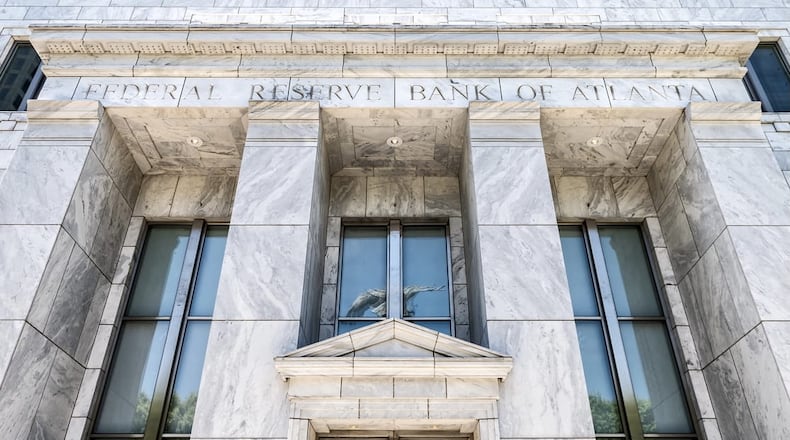A few weeks after she mailed a check to pay a tax bill for my mother, my sister got a phone call from the bank.
The representative wanted to know if she had written a check to Kavon Jones. If she even knew a Kavon Jones. The answer was no.
That prompted a quick trip to the bank where she discovered the check had been washed and the $10 tax bill had become $18,000 cash to a stranger.
The matter was quickly resolved but a week later, another check surfaced.
This time for $12,000. That check had been intended for the care facility where my mother is a resident but Kavon Jones had struck again.
A month later, after innumerable forms and phone calls to file a claim, the money still hasn’t been returned, though the bank has assured my sister it will be deposited to my mother’s checking account this week.
I experienced all of this secondhand but it was enough to prevent me from ever writing another check unless absolutely necessary.
My sister is still holding on, however. She said she plans to keep writing paper checks but will stop mailing them from unsecured mailboxes. Instead she will give them directly to the recipient or use the mail drop inside the post office.
But that’s a lot of work to pay bills and I think it is time we all stopped clinging to paper checks.
We do lose some things by letting go of paper checks — that tangible feeling of paper in our hands, the personal touch of our writing on paper, the sense of control when we balance our checkbooks and the ability to stop payment — but we also have much to gain.
For consumers, the shift from paper checks to electronic transfers saves money, time and reduces fees and fraud, according to 2022 data from the Association of Finance professionals. Then there is the positive environmental impact of getting rid of paper checks — no check, no envelope, no stamp —and no pollution from the gas powered vehicle that transports the check to its destination.
Check use has been on the decline for decades since the mid-1990s when it peaked at 49.5 billion checks written, according to the Federal Reserve Bank. From 2000 to 2012, the number of checks paid dropped from 42 billion to 18 billion, a decline of almost 60 percent.
In 2003, the Reserve Banks had 45 locations across the country that processed paper checks. By 2010, only one, right here in Atlanta, was still in operation. In 2012, the Federal Reserve of Philadelphia predicted paper checks would be extinct by 2026.
A new law in the new millennium, the 21st Century Act, paved the way for electronic check collection which has now become the industry standard. But despite these advances, many of us are still writing checks even as check fraud doubled from 2021 to 2022.
Consumers wrote 1.5 checks per month in 2022, according to the annual Survey and Diary of Consumer Payment Choice from the Federal Reserve of Atlanta. Almost half (46%) of respondents said they had written at least one check in the past 30 days.
Age is definitely a factor in check usage. Older generations tend to cling a bit tighter to those paper checks. But check use also depends on the transaction.
When the amount of a purchase or expense is large or when consumers are paying contractors, charities, the government or rent, they are more likely to pay with paper checks.
This is drastically different than when I opened my first checking account in college. I wrote checks for everything — textbooks, an evening gown and a speeding ticket in Virginia during an epic road trip to Howard University’s homecoming in 1988.
My parents taught me how to write checks when I was a tween. My mother would hand over the checkbook at the grocery store and wait for me to make out the check for her to sign before handing it to the cashier. Then I would go home and balance the checkbook which at the time seemed like a lot of responsibility and a lot of fun.
I have written checks as recently as last summer but I just spent 15 minutes looking for my checkbook to verify this, so I clearly do not keep checks close at hand.
Many companies and some countries are forcing consumers to go electronic by refusing to accept paper checks. This can feel like a dangerous move when we are constantly hearing about one data breach after another.
But really, it is time to let go.
I know many of you, like my sister, will continue writing checks well past the predicted date of obsolescence in 2026.
So if you won’t give up on paper checks, at the very least, make sure the check is not in the (unsecured) mail.
Have you been a victim of check fraud? Share your story by emailing Nedra at nedra.rhone@ajc.com.
Read more on the Real Life blog (www.ajc.com/opinion/real-life-blog/) and find Nedra on Facebook (www.facebook.com/AJCRealLifeColumn) and Twitter (@nrhoneajc) or email her at nedra.rhone@ajc.com.
About the Author
Keep Reading
The Latest
Featured



